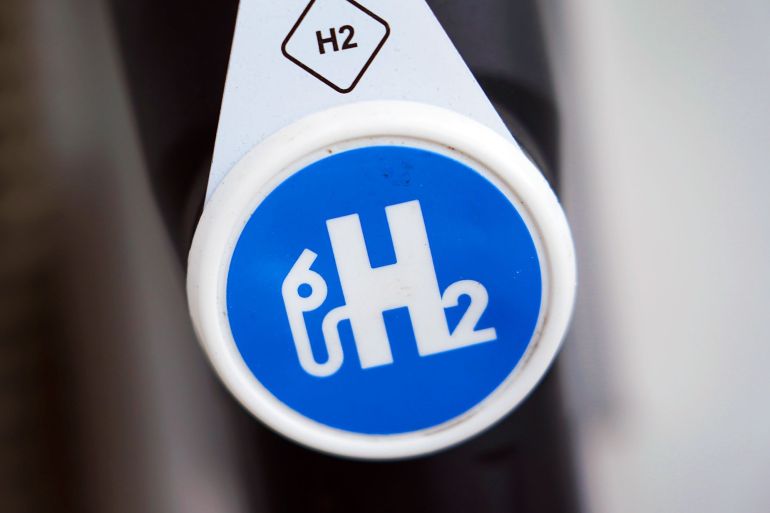UAE seeks investors to build hydrogen export facilities
The market for hydrogen is tiny now but could be worth as much as $700bn annually by 2050, according to Bloomberg.

Abu Dhabi is seeking investors to help build hydrogen export facilities, as Middle Eastern oil producers step up plans to sell what’s seen as a crucial fuel in the transition to cleaner energy.
Abu Dhabi National Oil Co., which pumps almost all the oil and natural gas in the United Arab Emirates, is in talks with energy companies about them buying equity stakes in the hydrogen projects, according to people familiar with the matter. It also aims to sign long-term supply contracts before pushing ahead with the investments, they said.
Keep reading
list of 4 itemsSaudi-UAE rivalry takes shape amid OPEC spat and competing hubs
What’s behind the dispute between Saudi Arabia and the UAE?
Retail giant Amazon’s carbon emissions rose 19% during pandemic
The market for hydrogen is tiny today but could be worth as much as $700 billion annually by 2050, according to BloombergNEF.
Projects to export the fuel — which only emits water vapor when burned — are likely to cost billions of dollars. But amid a global push to slash greenhouse-gas emissions, Persian Gulf nations such as the UAE and Saudi Arabia are looking to hydrogen to reduce their reliance on oil.
Japan, Korea Deals
Hydrogen can become a major energy source in the next 20 years, Sultan Al Jaber, head of Adnoc and the UAE’s climate envoy, has said. The company has signed agreements to explore sales of the fuel with Japan’s government and GS Energy of Korea.
State-owned oil firms in the Gulf want to turn their expertise in exporting liquid fuel into shipping hydrogen or ammonia to customers worldwide for electricity, transport and industrial use.
Saudi Aramco aims to to have a “large share” of the market that it sees emerging from 2030 onwards.
Most of what Adnoc exports is likely to be blue hydrogen, created by converting natural gas and capturing the carbon dioxide by-product. The hydrogen may be turned into ammonia to ship it more easily.
On Wednesday Adnoc said it would study commercial opportunities for ammonia projects in the UAE with Japan’s Inpex Corp. and Jera Co., and with the Asian country’s state energy firm.
Ammonia Plant
Adnoc, which already produces hydrogen for its refineries, will boost output by expanding an oil-processing plant and the Borouge petrochemical facility at the Ruwais industrial hub, according to the people. The extra hydrogen will be used for an ammonia facility planned with Fertiglobe, a fertilizer firm.
In a sign of international companies’ increased interest in using the region as a base for hydrogen, Italian producer Eni SpA said it will study commercial feasibility of such projects in Egypt. Eni said it will look at using either renewable energy or carbon capture technology to avoid or eliminate carbon emissions.
Abu Dhabi also wants to develop green hydrogen, which is produced using renewable energy, like solar power, in a process that doesn’t emit any carbon. Blue hydrogen is cheaper and expected to remain so for many years.
The UAE is considering setting a target for net-zero emissions, Bloomberg reported last month, something no OPEC member has done yet. It’s also looking to increase its renewable-energy capacity.
Still, alongside green initiatives the country is spending billions of dollars to enable it to pump more crude. Those investments have led to tensions with Saudi Arabia and the Organization of Petroleum Exporting Countries, with the UAE arguing its current oil-output quota is too low.